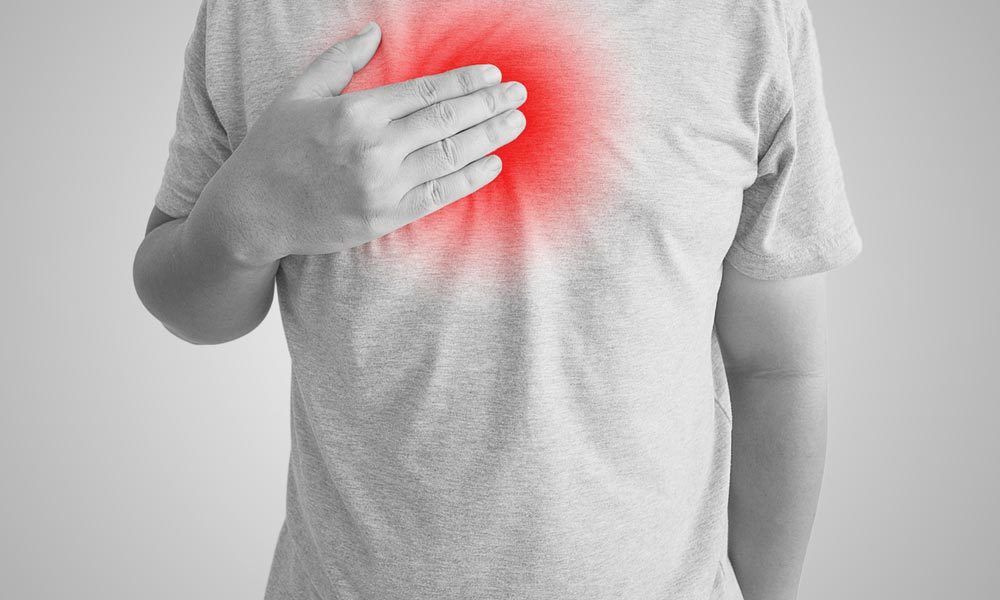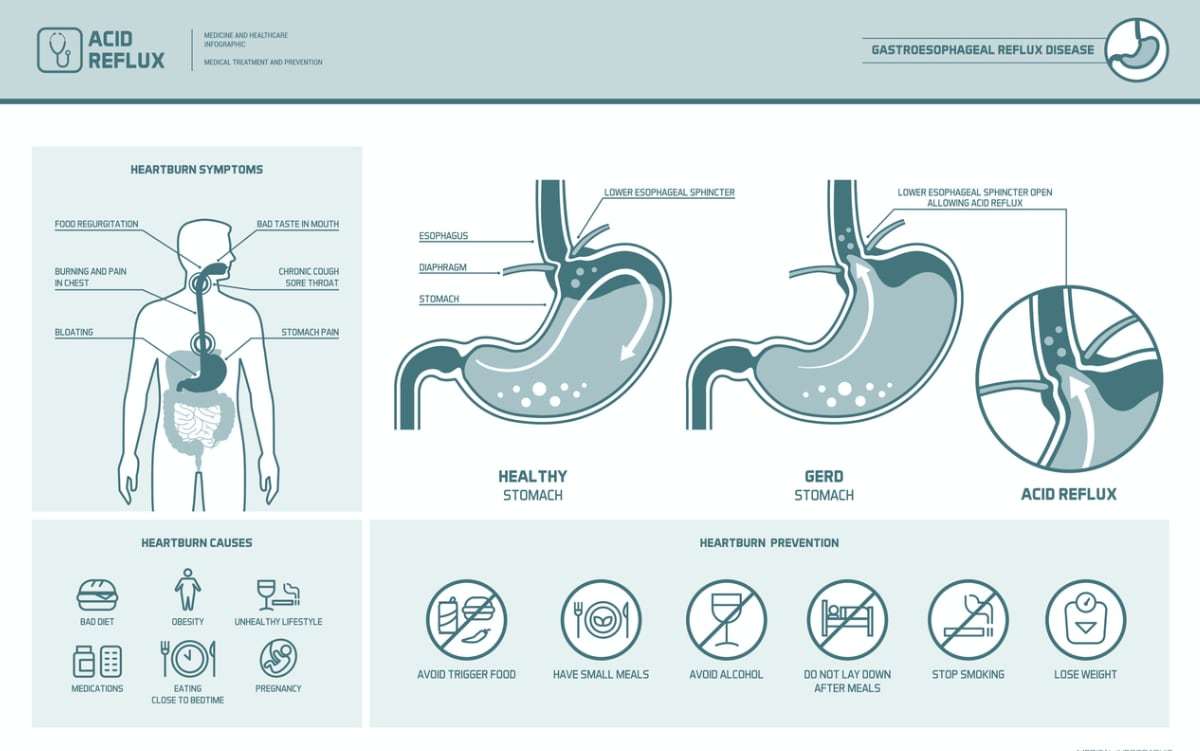
It Might Be More Than Just Heartburn
Most people have felt the telltale symptoms of heartburn. Whether at the end of a large meal or as a side effect of being pregnant, heartburn is something that is an unfortunate fact of life for many people. For some, it’s a rare occurrence that can be treated with over the counter antacids, but for others, it may be chronic and a much more significant issue to deal with.
What Is Heartburn?

Unlike what you might think because of its name, heartburn doesn’t have much to do with your heart. Heartburn is a condition that occurs when the lower esophageal sphincter isn’t functioning as it should be. The lower esophageal sphincter serves as somewhat of a gatekeeper between the stomach and the esophagus. If it’s not doing its job properly, it may allow stomach acid to travel up into your esophagus which is what causes the painful burning sensation. Heartburn can pop up on occasion, but it can also be something that hinders your regular daily activity. Some people may confuse heartburn with a similar condition called GERD.
What Is GERD?
GERD stands for gastroesophageal reflux disease. It occurs when, like heartburn, the lower esophageal sphincter doesn’t function properly and allows stomach acid to flow back up through the digestive system rather than down into the stomach. The acid is what causes the burning sensation. Heartburn is actually a symptom of GERD.
What Happens If You Have Frequent Heartburn?
Although heartburn is common, frequent heartburn only occurs in 10-15 percent of the western hemisphere’s population. Frequent heartburn is defined as experiencing persistent symptoms at least once a month. For many of those who experience frequent heartburn, discomfort is all they have to worry about. Others, however, may have more pressing concerns than intermittent pain and burning sensation.
For some frequent heartburn sufferers, there may be additional concerns about long-term health issues including having a slightly increased chance of developing esophageal cancer or a disease of the esophageal lining. If you experience frequent heartburn, the tissue in your esophagus can alter the lining of your esophagus, which can cause a condition called Barrett’s esophagus. While some have no symptoms of Barrett’s esophagus, it can also present with continued chronic heartburn that isn’t helped by medications.
How Can I Decrease My Heartburn?
There are many causes for acid reflux and the associated symptoms of heartburn, including weight, pregnancy, diet, or delayed stomach emptying. Most causes can be narrowed down to these:
- Failure of the Lower Esophageal Sphincter (LES)
- Lying down immediately following a large meal
- Smoking
- Obesity
- Snacking near bedtime
- Pregnancy
- Regular use of blood pressure medications, certain muscle relaxers, ibuprofen, or aspirin
- Eating certain foods, such as chocolate, garlic, onions, spicy or fatty foods, and anything with citrus
- Frequently drinking carbonated beverages, coffee, tea, or alcohol
Most reflux symptoms can be helped by losing excess weight and managing your diet, including eating smaller meals and avoiding trigger foods, cutting out coffee and alcohol, and managing your intake of certain over the counter medications.
If you’re experiencing frequent or debilitating heartburn that has begun to affect your daily life, it’s time to make an appointment with Digestive Health Partners. We can do a physical examination to uncover the root cause of the issue and determine if we can treat your condition through a combination of diet, medication, and lifestyle changes.